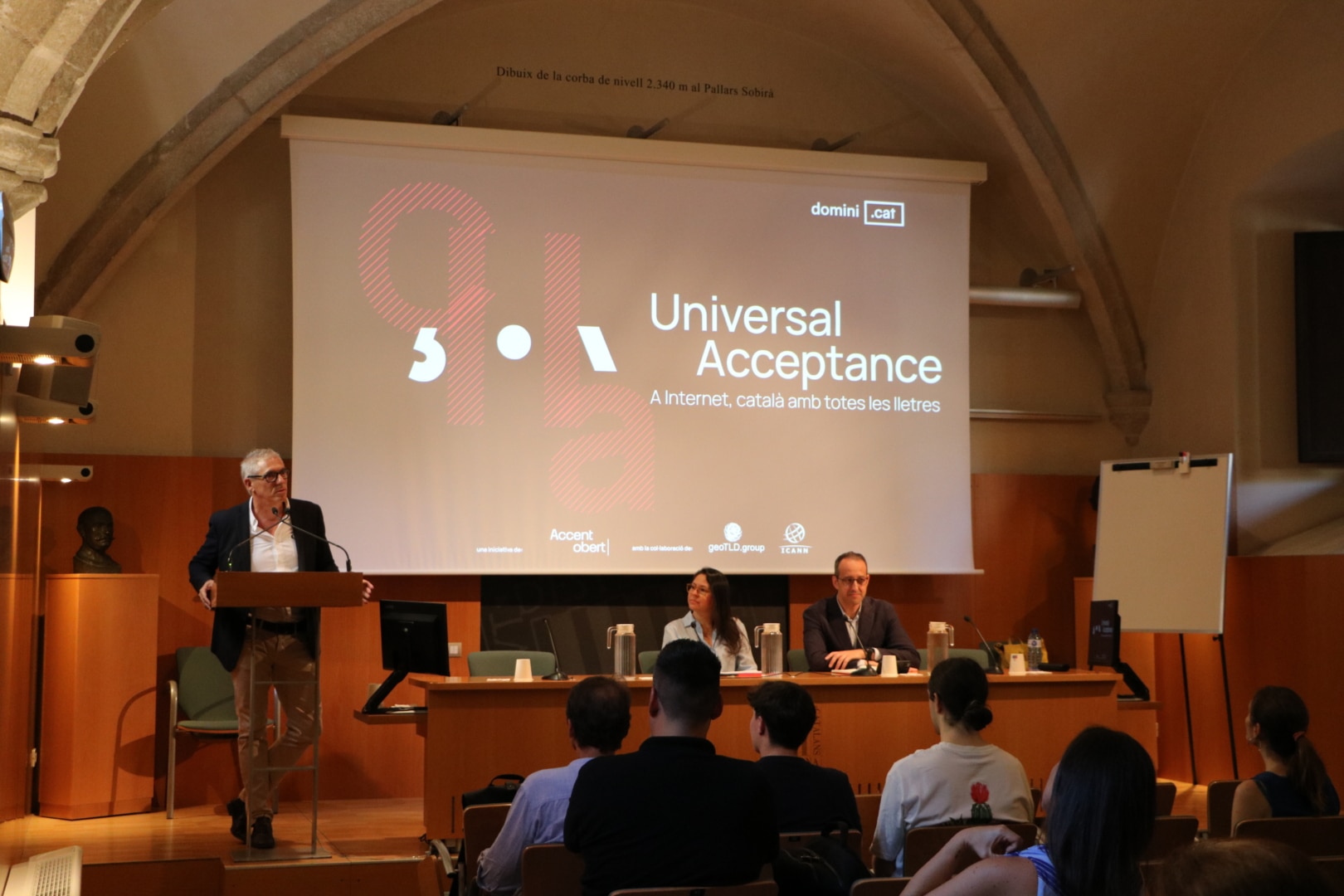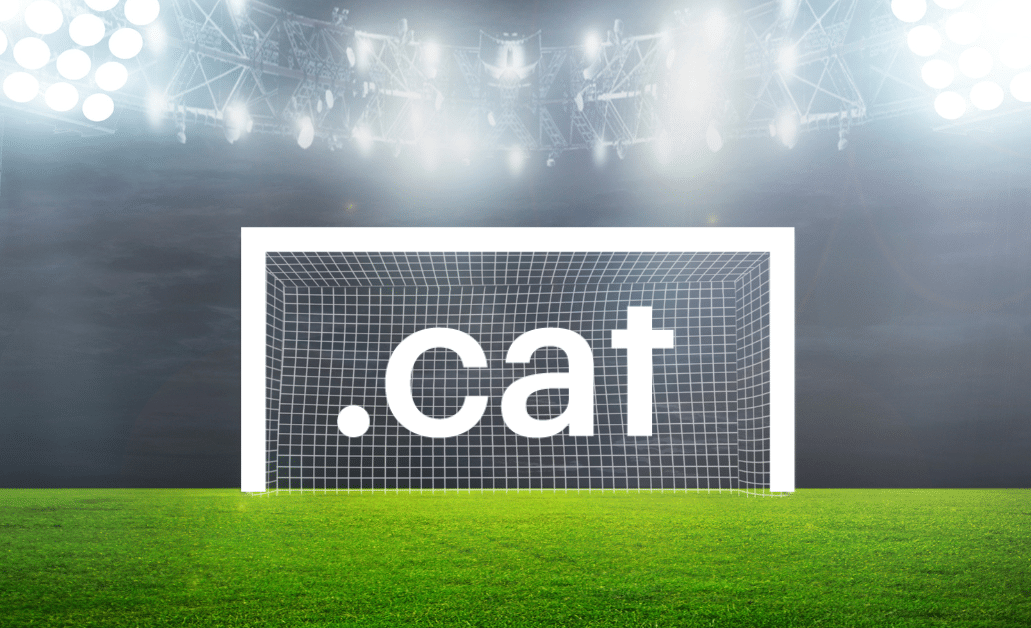Catalan regains visibility in Google’s results. What does this mean for Catalan SEO professionals?

At the beginning of 2022, an update to Google’s algorithm had the collateral effect that search results in Catalan were no longer prioritised in searches by Catalan-speaking users in any browser. The .cat Foundation followed this situation closely from the beginning, as it meant a loss of visibility of Catalan content for media, shops, services, institutional pages on the Internet, among others; in the long run, it also harmed many of the websites that identify themselves with a .cat domain.
Thus, together with several organisations that are concerned about Catalan and with the support of the Generalitat de Catalunya (Regional Government of Catalonia), the .cat Foundation coordinated the creation of the Alliance for the digital presence of Catalan. Based on this partnership, the .cat Foundation has led a study to prove to Google that it had created a problem, whereas monitoring tools have been developed subsequently to be able to follow its evolution.
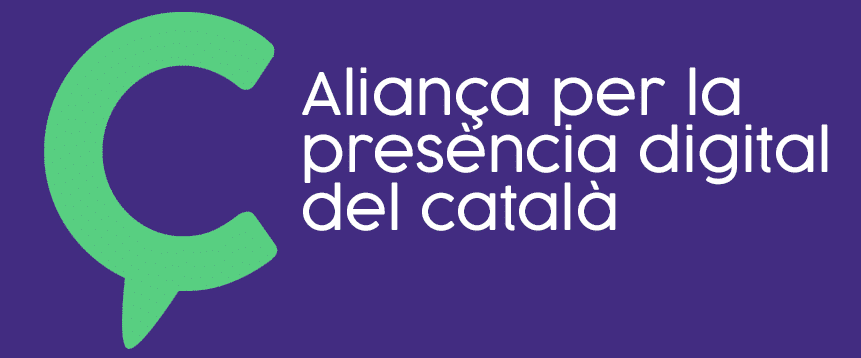
This has not been an easy task, but on 8 September Google published a statement on its blog acknowledging the issue and reporting the changes and improvements carried out to “better adjust the results to the language in which the search is performed.”
In the tweet to announce the changes, Google acknowledges that they were largely driven by the interests (and pressure) of the Catalan-speaking community, led by the Alliance for the digital presence of Catalan, with the .cat Foundation as its technical secretariat.
This is undoubtedly great news for Catalan in the digital world. It is important to continue to support the creation of content in our language, but it must get the visibility it deserves as well. This is true not only for Catalan, but also for all small languages in the digital world and for the language domains that represent them, such as .bzh, or .frl, among others.
For SEO specialists, i.e. “techies” and “geeks”, and, above all, for those of us who work in minority languages, this is also relevant news, since Google, in addition to indicating how to filter the search results in a specific language, also encourages content creators to post in their preferred languages.
Google’s move has already achieved that, as the Alliance’s report mentions, the presence of websites in Catalan among the top three search results has risen from 24% a month ago to 57% at present:
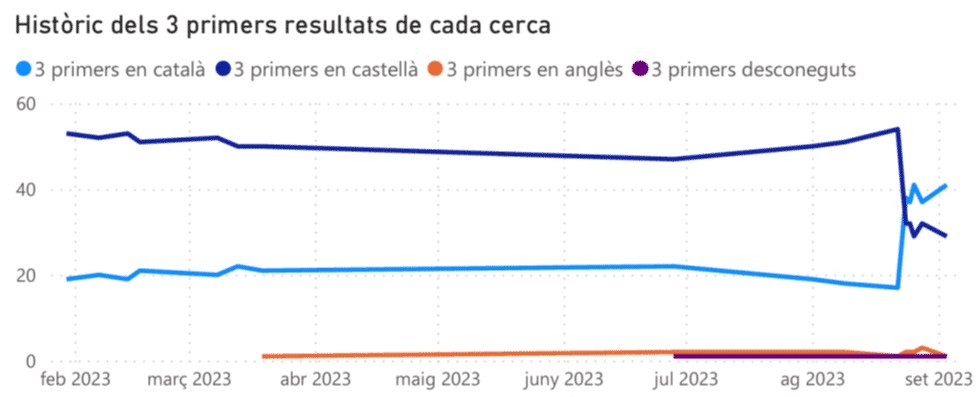
History of the top 3 results of each search: top 3 in Catalan, top 3 in Spanish, top 3 in English, top 3 unknown
However, what does this mean for owners of Catalan websites or SEO professionals?
Fernando Maciá, general manager of the Human Level agency, believes that Google’s response actually fits one of the classic recommendations:
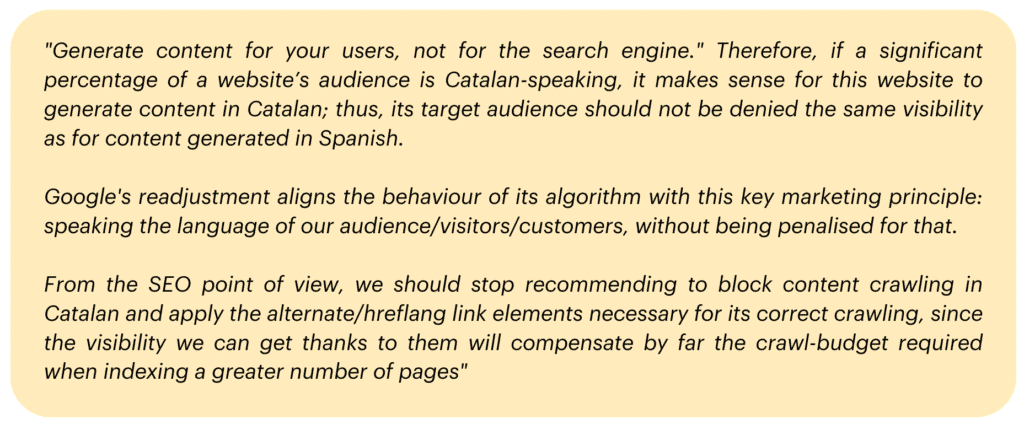
On the other hand, according to Àlex Hinojo, knowledge manager:
“Whether we like it or not, Google is the gateway to the information universe that is the Internet. Searching for something on Wikipedia, looking for public administration information, buying products. For some months now, Google has been indexing content that it deems to be useful to us according to the EEAT (Experience, Expertise, Authoritativeness and Trust) criteria. In other words, it ranks pages according to criteria of expertise, experience, authority and trust. How does this EEAT filter behave in areas where bilingual communities or multilingual societies coexist? Thus, it is very important for the Catalan-speaking community that the language criterion is also embedded in the search and filtering criteria. Thanks to the Alliance and the dialogue with Google’s technical teams, it has been possible to make some adjustments to Google’s algorithms in order to make the language criterion prevail in searches, while taking into account the device and browser configuration as well as the search words.
This kind of dialogue with large technology companies is necessary and should be encouraged on an ongoing basis in order to defend the interests of Catalan speakers and promote better understanding between organisations. We must celebrate this milestone of the Alliance.”
The positioning of .cat domains
Last, but not least, Google’s announcement validates once again the results of the study that was carried out to assess the positioning of .cat domains, which concluded with a strong data: .cat domains are positioned comparatively better than .es and .com domain pages, hence ranking first in 60% of the control searches during the experiment.

As far as the .cat domain is concerned, we welcome this move by Google in favour of respecting the users’ language preferences. This is essential for maintaining diversity on the Internet and represents a new boost to website development in Catalan, which, despite the challenges, remains very much alive thanks to a community that is willing to continue creating quality content to seize the positioning opportunities in a niche market where there is still room for improvement. An organised and professional community we are deeply proud of.
We will continue to promote the monitoring of Catalan content’s visibility on search engines. Trailblazing monitoring in the field of SEO, which is not only useful for Catalan.
To create versions in your language, we recommend the following Google article:
https://developers.google.com/search/docs/specialty/international/localized-versions
